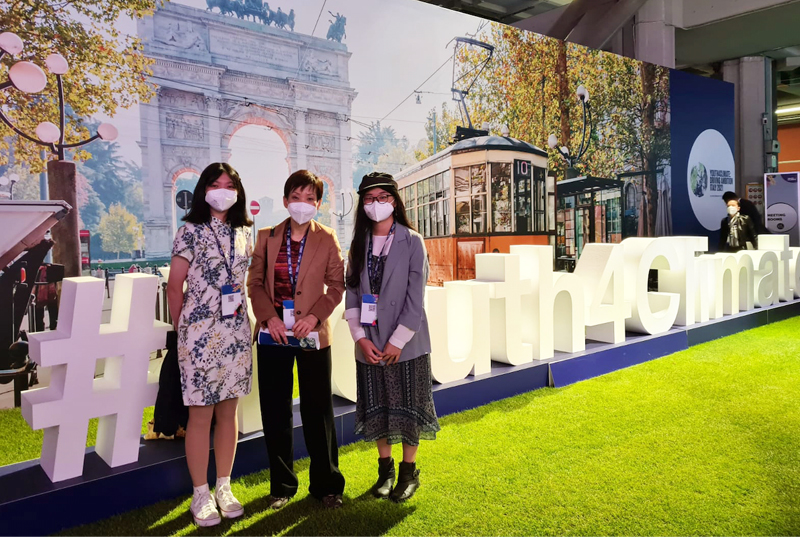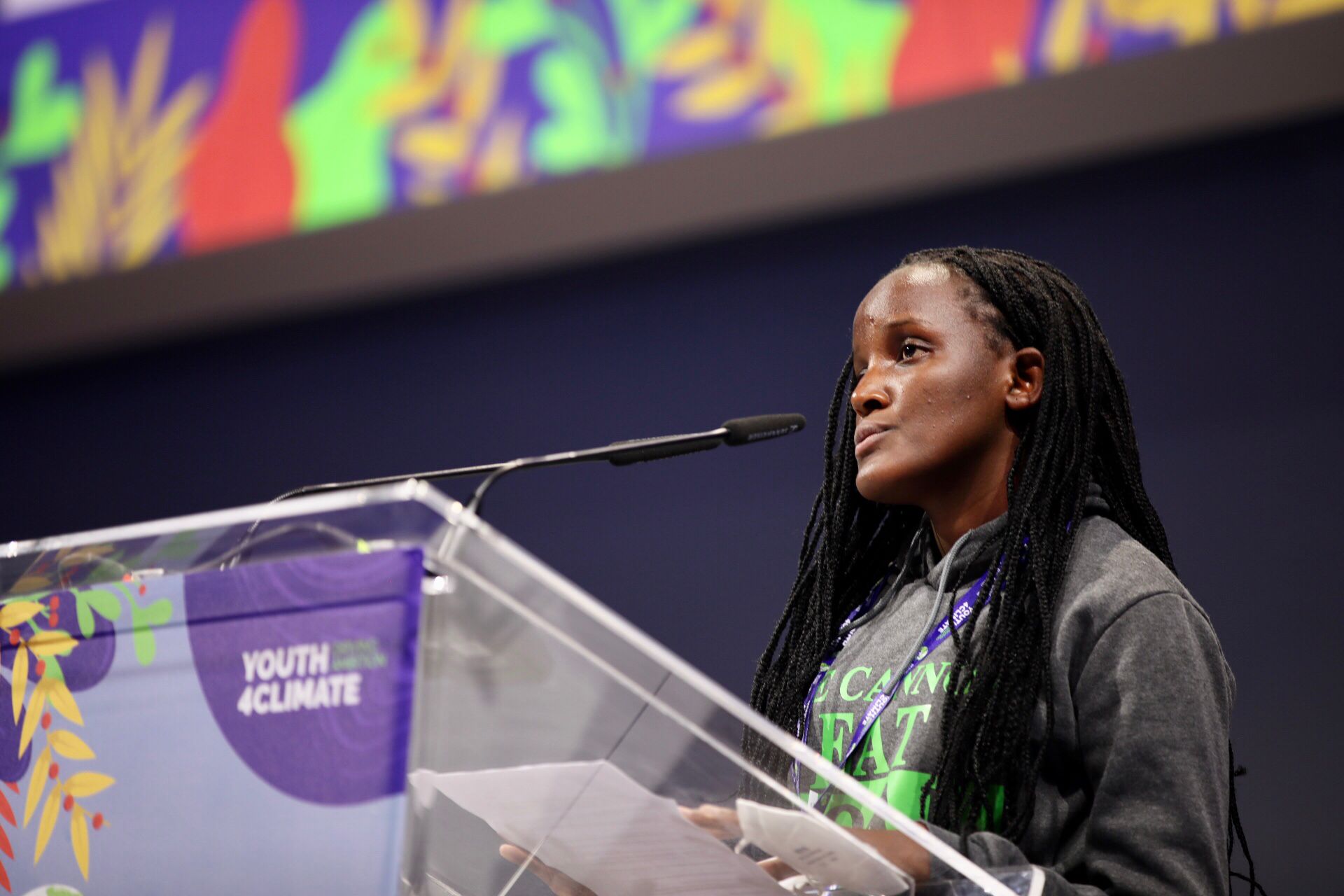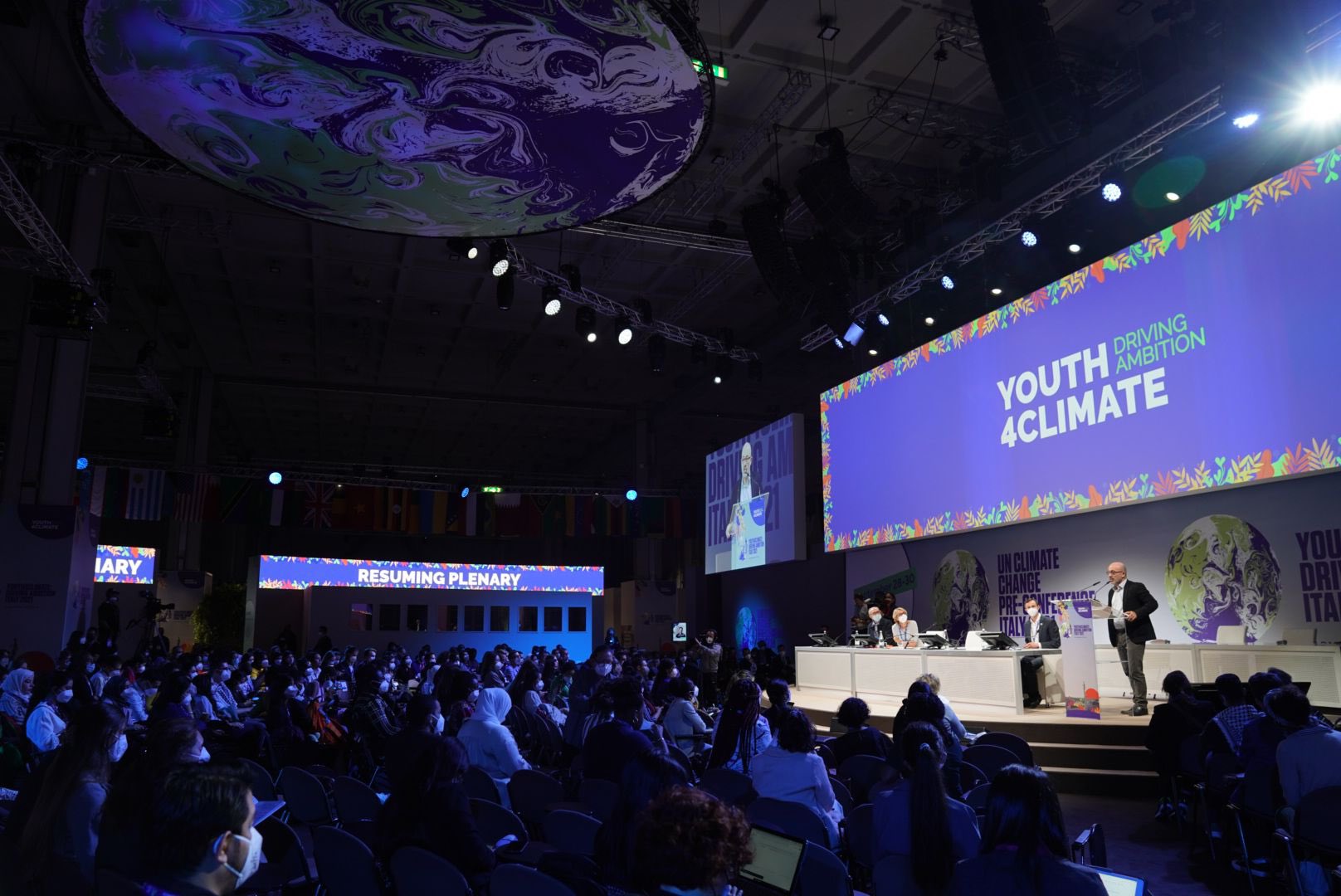
Teng Chu Yu (first from right), with Ms Grace Fu, Minister for Sustainability and the Environment (centre) and fellow Y4C Singapore delegate, Kayle Poon at the UN Youth4Climate event in Milan. Photo courtesy of Theresa Seetoh, MSE
15 October 2021
From 28 to 30 September 2021, I had the privilege of representing Singapore as one of the two youth delegates to the UN Pre-COP26 Youth4Climate event in Milan, Italy, alongside Kayle Poon, a junior college student.
Previously, I had represented Singapore as a youth delegate to the Roundtable for Sustainable Palm Oil (RSPO) conference in Bangkok back in 2019, alongside Lavanya Prakash, who is currently a Year 4 NUS Environmental Studies student. That event was more targeted at raising regional ambition for more progressive responsible palm oil policies and initiatives.
While both the Youth4Climate and RSPO conferences culminated in draft proposals that carried the demands of the youths in the region for more progressive climate and other environmental action, the experiences that they provided were different. In particular, this Youth4Climate event enabled me to hear a lot more diverse perspectives beyond the Asian region. It reminded me that I need to be more inclusive and mindful of the assumptions I have as someone of a dominant race in a developed country, and to keep a lookout for more perspectives of the most affected peoples and areas (MAPA) in this climate crisis.

Vanessa Nakate's Keynote Speech at the event. Photo courtesy of Leigh Vogel / Connect4Climate
It provided an important platform for the exchange of ideas and technical and emotional support among us youths, who share a common anxiety about the exacerbating climate crisis and current trajectory of climate action, and who are seeking more nuanced and constructive alternatives to the dominant narratives presented by international, national and corporate organisations and institutions – including the co-supporters of this Youth4Climate event, the United Nations and the World Bank.
Through themed discussions and iterative edits of the draft working papers, which are still work-in-progress till the end of October in time for COP26, Youth4Climate delegates managed to come to an overall, albeit imperfect, consensus on our collective demands for international leaders and entities to advance in COP26. Our proposals covered four main themes – Youth Driving Ambition, Sustainable Recovery, Non-State Actors Engagement and Climate-Conscious Society, which complement one another to address a wide range of sub-topics, spaces and communities. This gave me a bit of hope that the collective minds and passions of our generation could potentially advance more progressive and inclusive climate action, as we gradually accumulate greater experience, capacity and power across multiple organisations and sectors. However, our ability to advance climate action in time is severely limited with perversely insufficient action from international leaders.

Opening plenary, Day 2 at the UN Youth4Climate event. Photo courtesy of Leigh Vogel / Connect4Climate
As sea levels rise, climate refugee numbers climb, extreme weather events and other ‘black swan’ events become the norm, delegates from the international Youth4Climate network are reiterating the need to be more ambitious in our climate targets and fund more extensive research into transitioning to alternative indicators of national ‘success’, ‘progress’ and well-being. We need economies that do not center on GDP and limitless growth in a world with limited natural resources. We need to consider alternative economic models more seriously beyond capitalist and colonial models that we are familiar with – the models which we have been taught to see as the norm, though they are limiting the possibilities for a more just, inclusive and sustainable world for us all. These systemic changes cannot come without substantial political will, scientific research, and policy support, coupled with considerable time, energy and hope.

